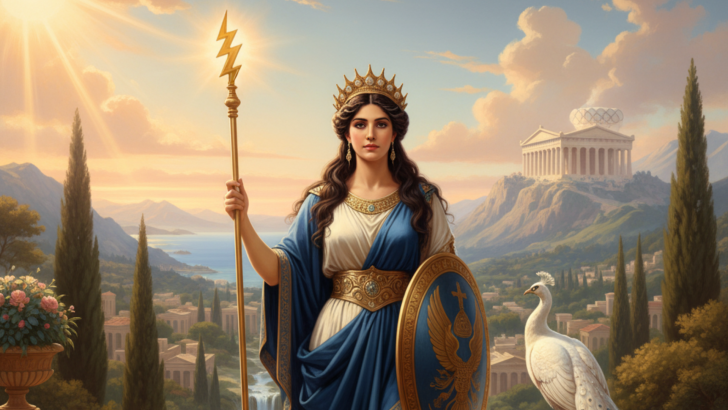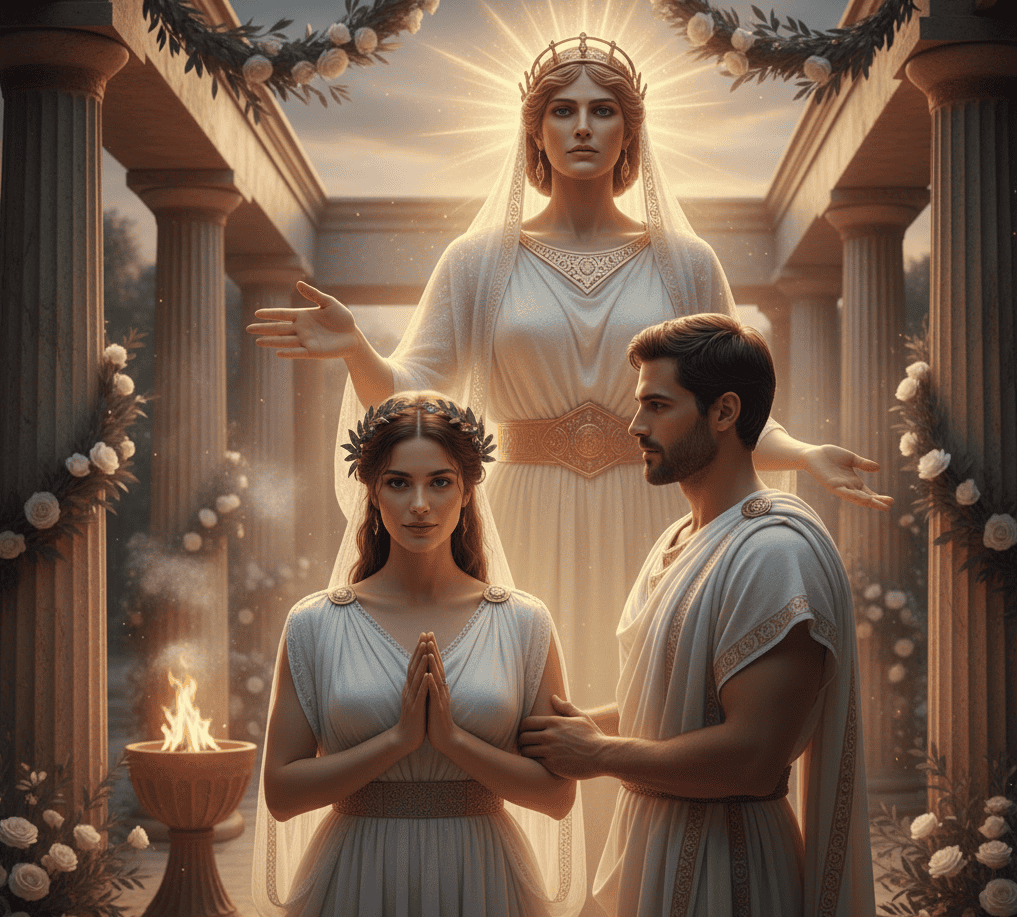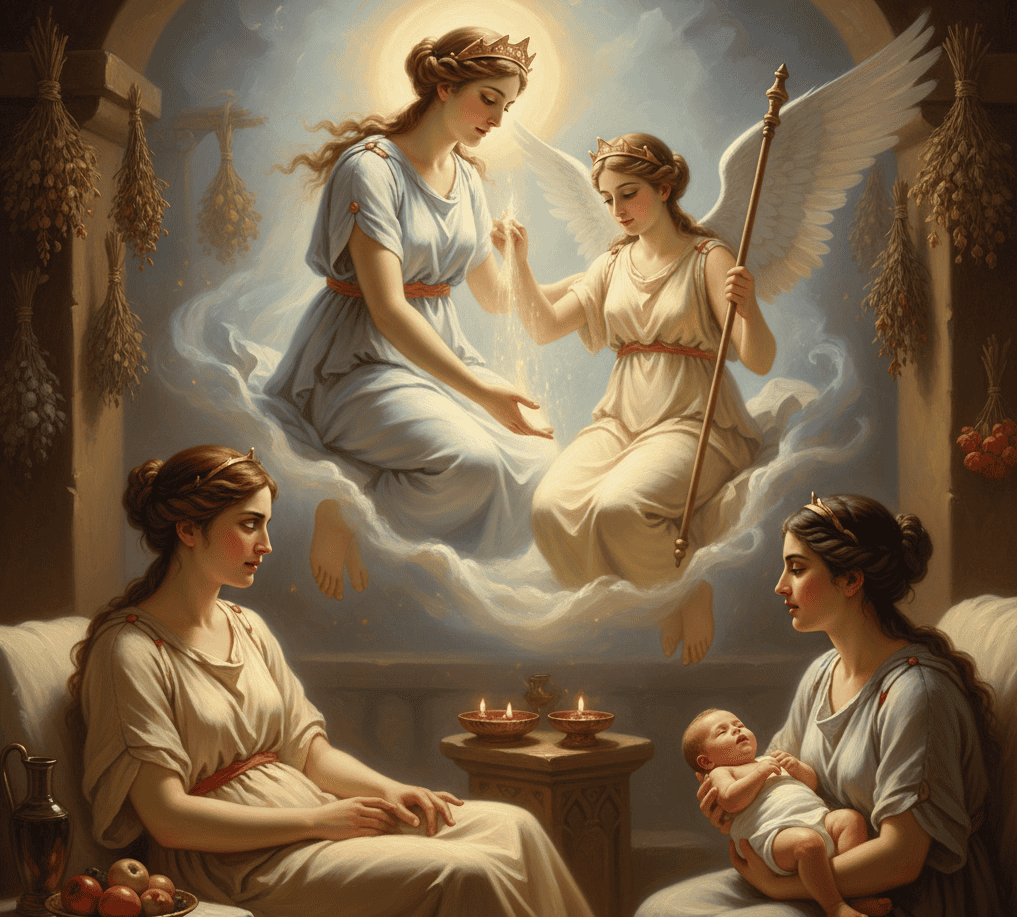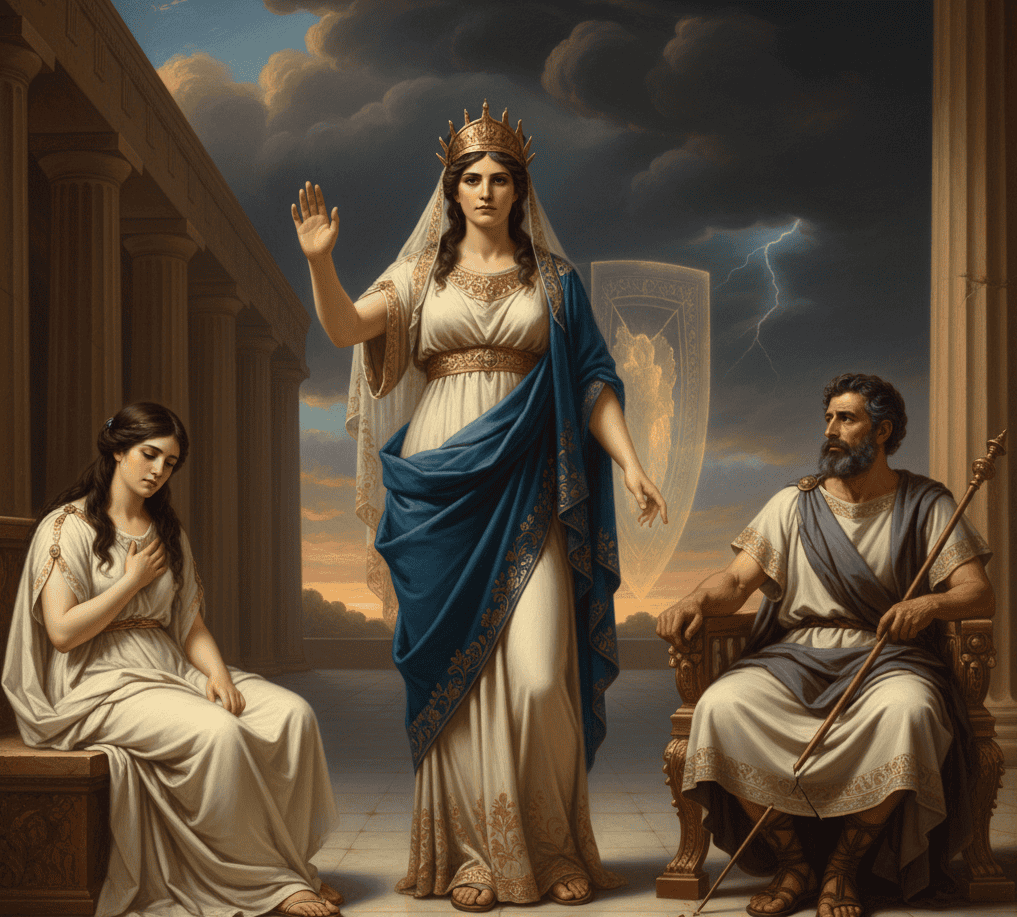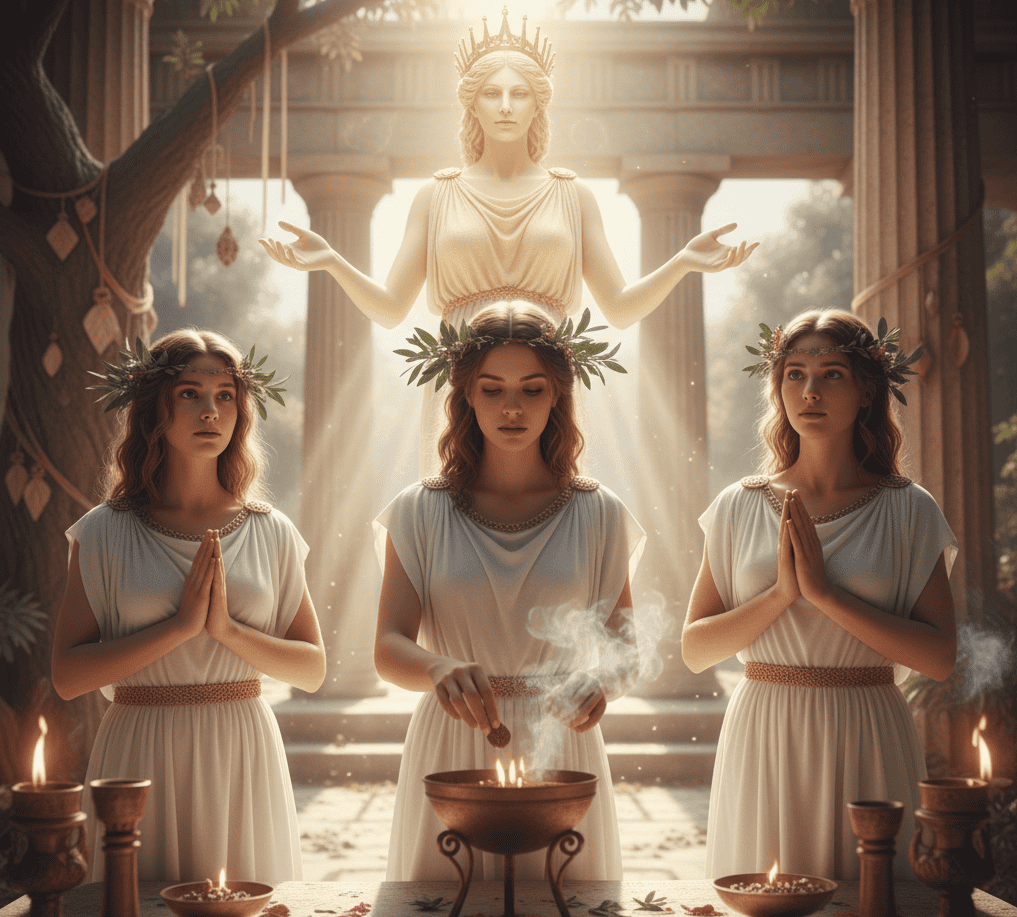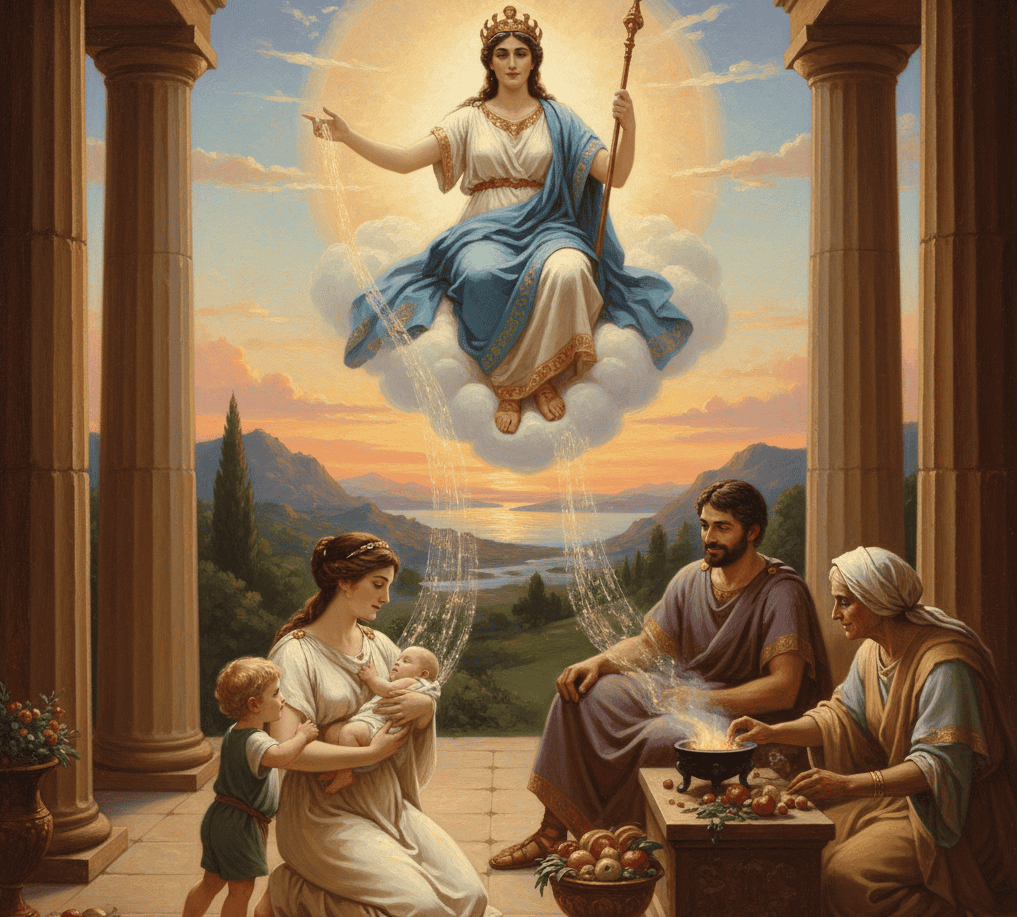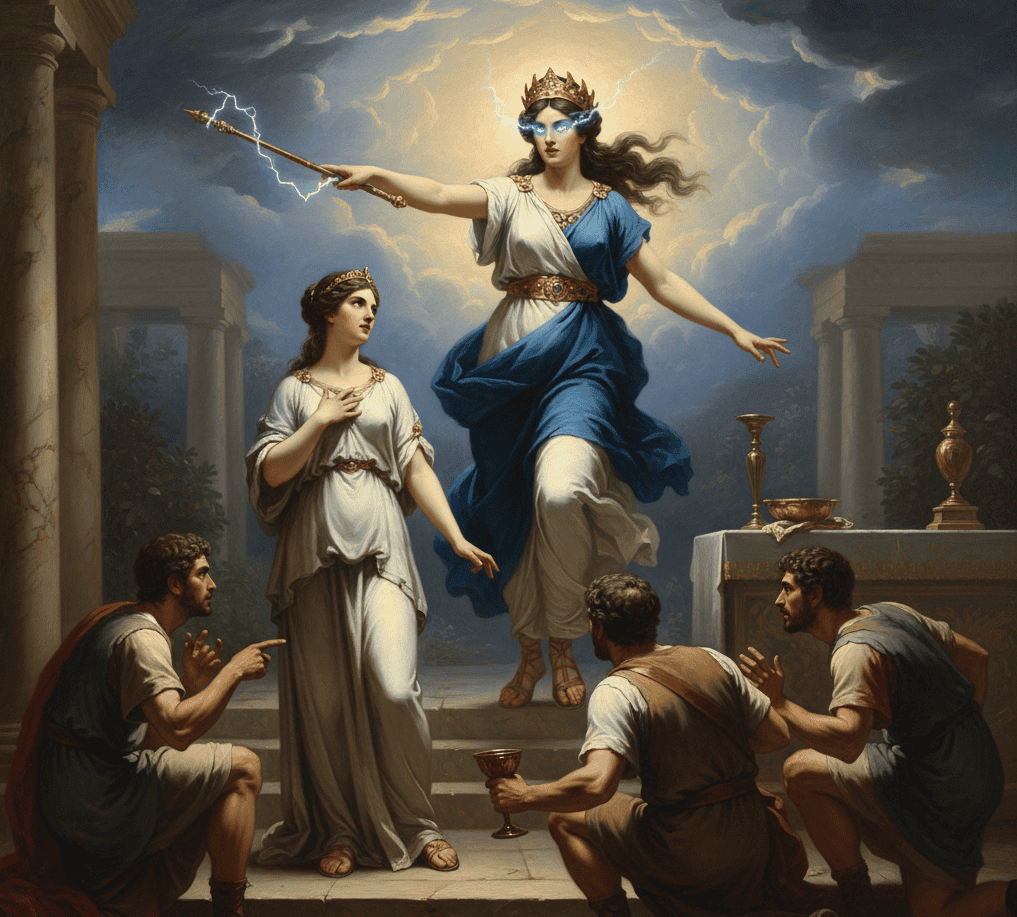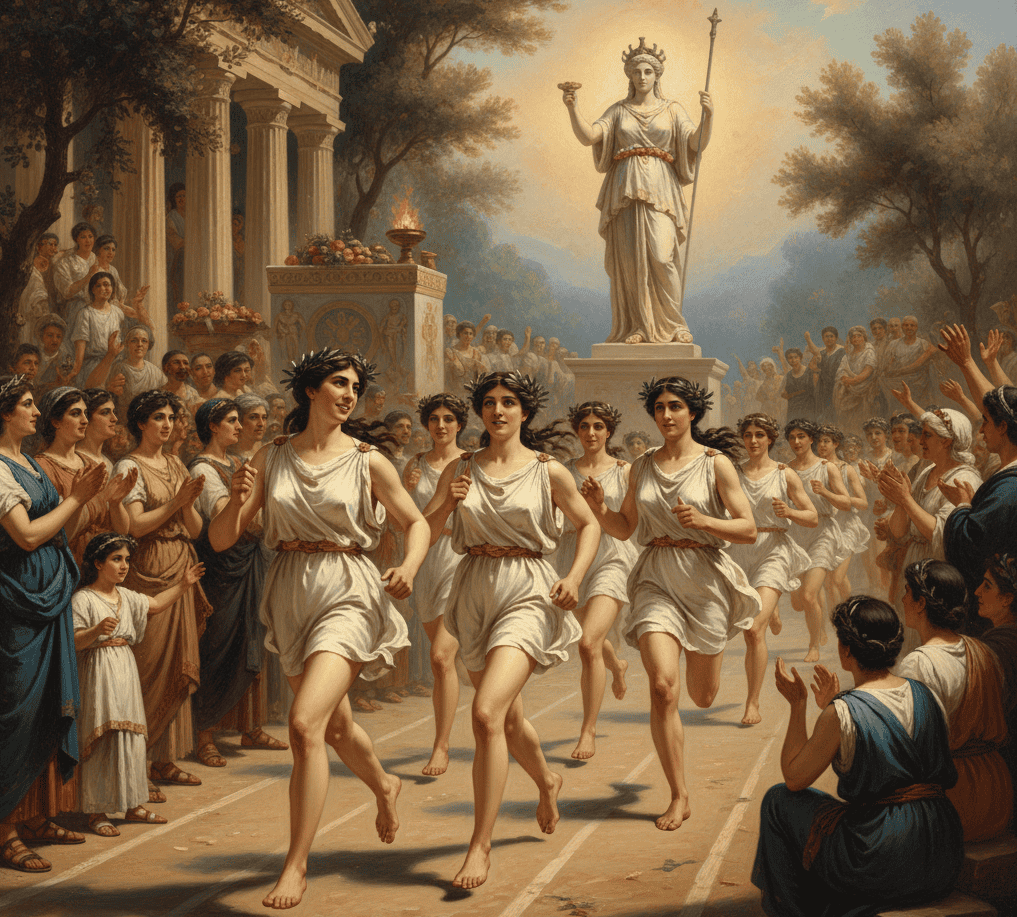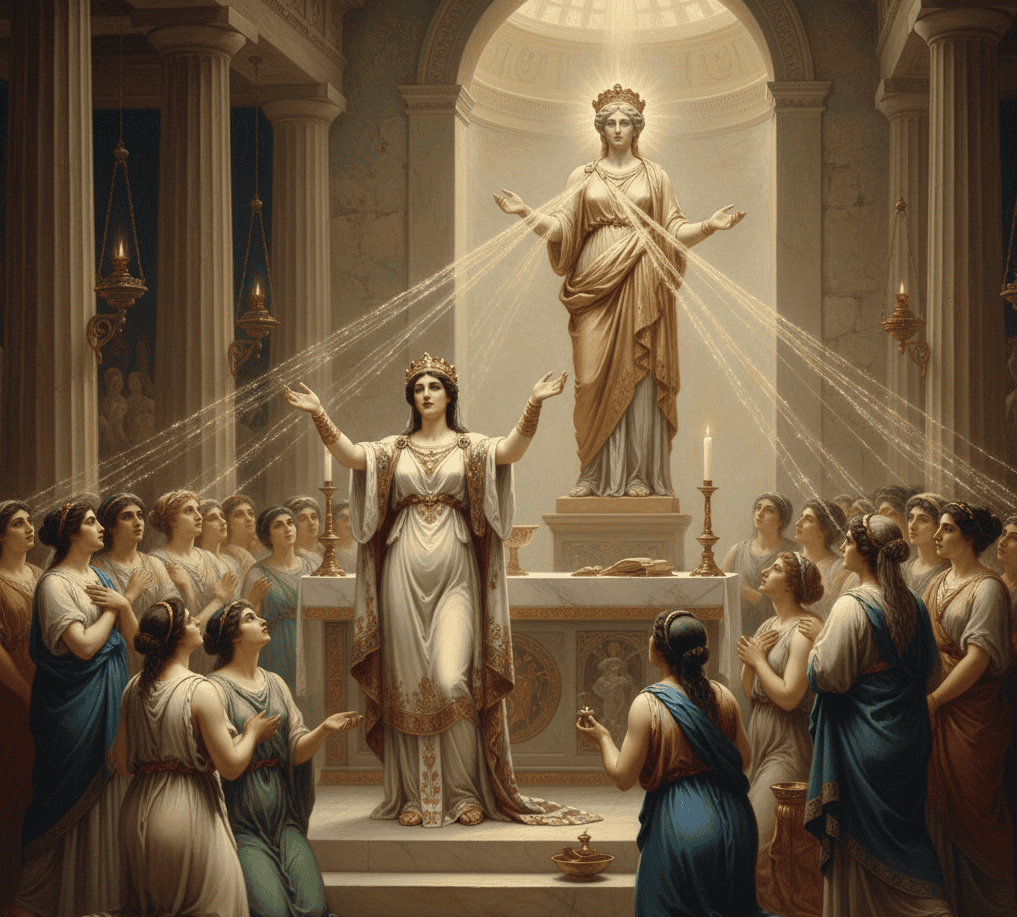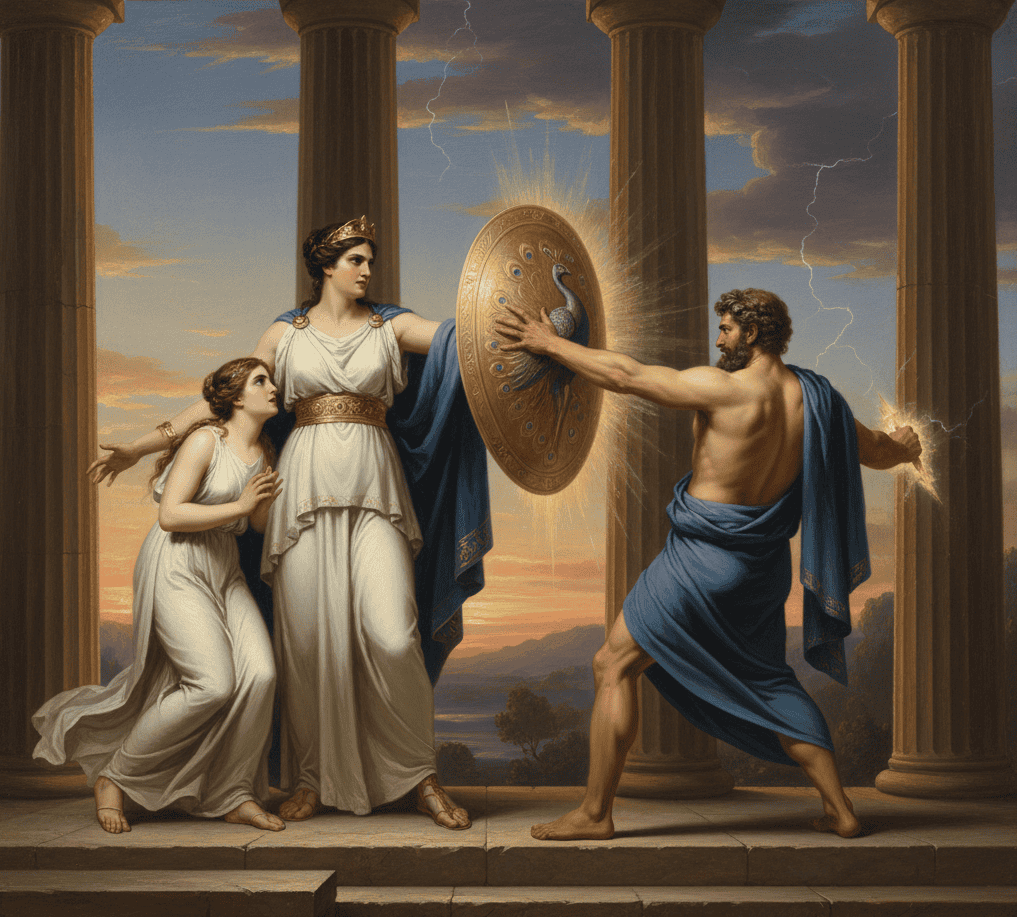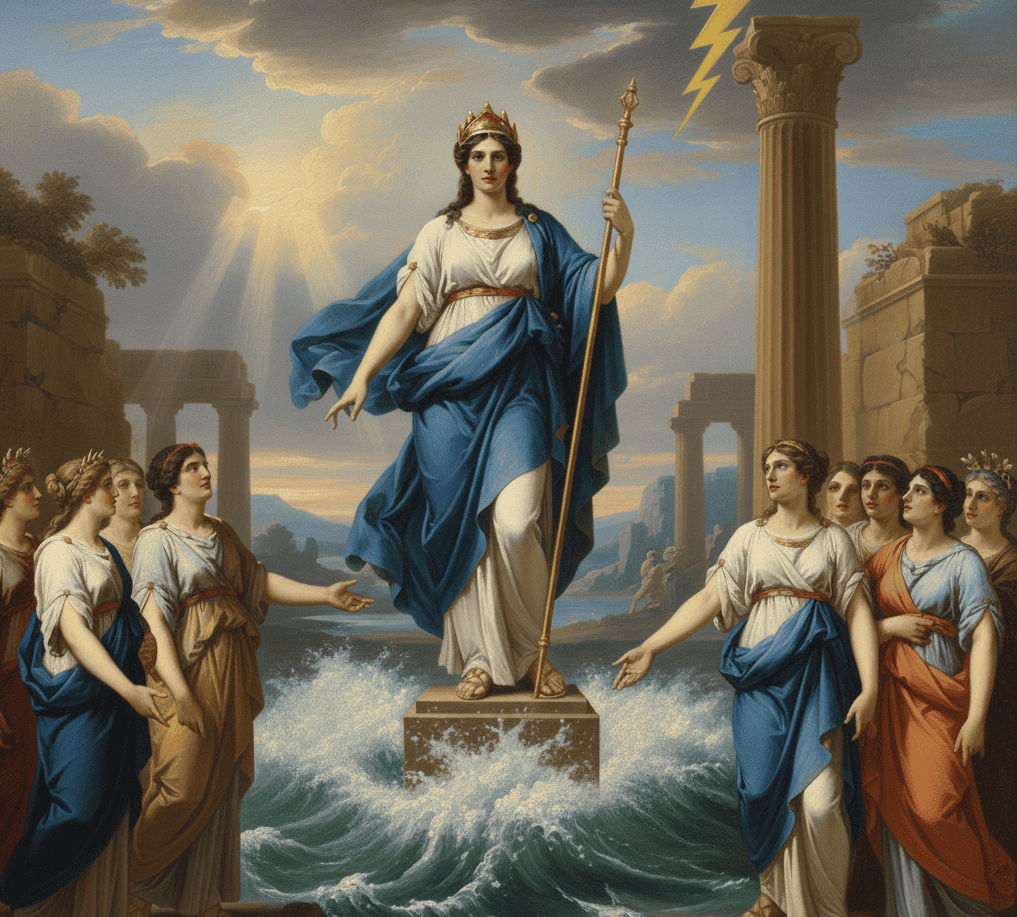When most people think of Hera, they picture her as the stern and jealous queen of Olympus, often angry at Zeus’s endless affairs.
But this is only one side of her story. Hera was far more than a vengeful goddess.
She was also a divine protector, a figure women turned to for guidance, protection, and strength in moments of need.
She represented marriage, childbirth, and womanhood itself, giving her a role deeply tied to the lives of mortal women.
Let’s explore ten ways Hera protected women in Greek mythology and why she became such an important figure for them.
1. Shielding Brides On Their Wedding Day
Marriage in ancient Greece was not only a personal union but also a social contract between families.
For brides, it was often a moment of uncertainty, since they were leaving their homes behind and stepping into their husbands’ households.
Hera was believed to be present during this transition. Brides prayed to her before the ceremony, asking her to bless their marriage and keep them safe.
Offerings were made to her in temples or at household shrines, and some accounts say brides carried tokens dedicated to Hera as protective charms.
In these moments, Hera wasn’t just the goddess of marriage in name; she was the one who shielded women as they crossed into a new and sometimes intimidating stage of life.
2. Guarding Childbirth With Eileithyia
Few experiences carried as much danger for women in antiquity as childbirth. Complications were common, and survival was never guaranteed. Hera’s role as protector became especially powerful here.
Alongside her daughter Eileithyia, the goddess of childbirth, she was invoked to ease labor pains and safeguard both mother and child.
Prayers and sacrifices were offered to Hera to ensure a smoother delivery. Women believed that her divine presence could turn away misfortune and allow new life to enter the world safely.
Even the most terrifying moments of childbirth could be faced with a little more courage if Hera was watching over them.
She symbolized a guiding force that understood the struggles of women’s bodies and offered strength when they needed it most.
3. Defending Women’s Honor In Marriage
Hera’s anger at Zeus’s endless betrayals has often been interpreted as jealousy, but another way to see it is as a defense of women’s dignity within marriage.
In Greek society, a woman’s reputation and honor were everything, yet men often strayed without consequence.
Hera stood as a divine figure who demanded loyalty and respect. Her fury at Zeus reflected what many women could not openly express.
She became a voice of resistance in the myths, embodying the expectation that marriage was not only a duty for wives but a responsibility for husbands as well.
For women who felt powerless in their homes, Hera’s stance gave them a sense that the goddess herself was on their side, fighting for the respect they deserved.
4. Protecting Young Women During Transitions
For young girls entering adulthood, Hera’s protection was vital. Coming-of-age rituals often included small offerings to her, recognizing her as a guardian during life’s transitions.
These moments were symbolic, a way of asking Hera to guide girls as they stepped into womanhood and prepared for marriage.
Hera was especially honored in festivals like the Heraia, which included foot races for unmarried girls. This festival wasn’t just about athletic competition.
It was a celebration of Hera’s protective role over young women as they navigated the uncertain stage between childhood and adult responsibilities.
For them, Hera’s presence meant they were not alone in facing these changes.
5. Supporting Fertility And Family Life
Beyond weddings and childbirth, Hera was the goddess women turned to for the health of their families.
Fertility prayers and offerings were directed to her, asking for children, long life, and harmony within the household.
In societies where women’s identities were often tied to their roles as mothers and wives, Hera was the one who held sway over whether those roles would be fulfilled successfully.
This made her presence deeply personal. Women lit lamps in her honor, whispered prayers for children in the night, and carried hope that she would listen.
Hera symbolized the possibility of a thriving family, where women’s struggles with fertility and family care could be met with divine support.
6. Defending Women From Disrespectful Behavior
Hera was not shy about punishing those who insulted her or disrespected women more broadly.
Though her punishments could seem harsh, they carried a clear message: women were not to be dismissed lightly.
Myths tell us of mortals who mocked Hera or dishonored women, only to face her wrath. To the Greeks, these stories weren’t just entertainment.
They were reminders that women’s dignity mattered, and Hera was the divine protector who made sure that lesson was never forgotten.
Even if mortals could not punish disrespect, they could trust that Hera might step in to defend their honor.
7. Giving Strength To Women Through Festivals
Festivals dedicated to Hera gave women a chance to celebrate their strength and bond with one another.
The Heraia was particularly notable because it allowed women to participate in athletic competitions, which was uncommon in the ancient world.
For the women who ran races in honor of Hera, the festival was more than a ritual.
It was a chance to showcase their physical strength, to gather in community, and to honor the goddess who empowered them.
These moments gave women a rare sense of visibility and pride, helping them feel that Hera’s spirit was alive in their own bodies and achievements.
8. Offering Protection To Priestesses And Worshippers
Priestesses who served Hera enjoyed a special bond with her. They were honored and respected in their communities, carrying out rituals that connected mortals with the goddess.
In return, they were believed to be under Hera’s divine protection. Ordinary women also felt this safety when they visited her sanctuaries.
Hera’s temples became spaces of refuge, places where women could pray for healing, strength, or escape from misfortune.
When life felt overwhelming, stepping into Hera’s sacred space allowed women to breathe, to feel seen, and to believe that the goddess was listening.
9. Defending Women’s Dignity Against Unwanted Advances
In myths, Hera often stood up against unwanted pursuits and advances, particularly when Zeus’s actions caused distress for other women.
While she could not always stop his behavior, her anger symbolized the outrage many women must have felt but could not express. Hera became a divine protest against unfairness.
She showed that women’s discomfort and pain were not invisible, that they could be acknowledged—even if only in myth.
Her role here wasn’t perfect, but it was powerful, giving women a sense that their struggles were echoed in the stories of the gods.
10. Standing As A Symbol Of Women’s Resilience
Perhaps Hera’s greatest protection came not from specific acts but from her very existence.
She endured betrayal, disappointment, and conflict, yet she never lost her position as queen of Olympus.
Her power was unshaken, her authority undeniable. For women, Hera was a living symbol of resilience.
She showed them that even when life brought suffering, dignity and strength could still be maintained.
Her endurance became their inspiration, reminding them that survival itself was a form of triumph.

Siempre sentí una fuerte conexión con lo Divino desde mi nacimiento. Como autora y mentora, mi misión es ayudar a los demás a encontrar el amor, la felicidad y la fuerza interior en los momentos más oscuros.

